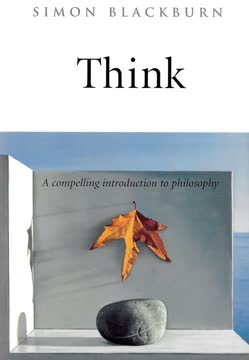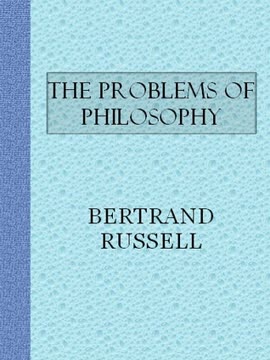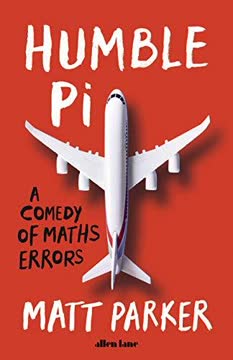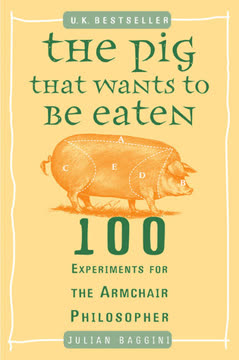Key Takeaways
1. Thought Experiments Strip Away Complexity to Reveal Core Problems
The purpose of such ‘thought experiments’ is to strip away the things that complicate matters in real life in order to focus clearly on the essence of a problem.
Isolating key variables. Real-life situations are messy, involving numerous factors that make ethical or philosophical analysis difficult. Thought experiments simplify these scenarios, isolating specific variables to examine their impact in a controlled, hypothetical environment. This allows for clearer reasoning about core concepts.
Beyond practical limits. These imaginary scenarios can explore situations that are impractical or even impossible in the real world, pushing ideas to their limits. By removing extraneous considerations, they help us focus on the fundamental nature of a problem, even if the scenario itself is outlandish. The goal is aid to thinking, not realistic description.
Provocation, not answers. Thought experiments are designed to stimulate further reflection rather than provide definitive solutions. They challenge our intuitions, reveal hidden problems, or suggest new ways of thinking, serving as a starting point for deeper philosophical inquiry.
2. Fundamental Assumptions About Reality Can Be Doubted
Is anything so self-evident that it cannot be doubted?
Challenging certainty. We take many things for granted, like the reality of the physical world or basic logical principles. Thought experiments, such as the evil demon scenario, ask us to consider if these seemingly undeniable truths could be illusions or deceptions. This process highlights the limits of our certainty.
The problem of justification. If a powerful deceiver could trick us into believing falsehoods are self-evident, how can we trust our own reasoning? This paradox forces us to confront the foundation of our knowledge and whether our capacity for rational thought must simply be accepted as basic, despite the possibility of error or deception.
Beyond external threats. Doubt isn't limited to external demons; it can be internal. Our own madness, flawed evolutionary programming, or even hypnosis could lead us to accept false premises as obvious truths, making it difficult to assess our own rationality from a neutral standpoint.
3. The Elusive Nature of Personal Identity
Are we then to say that there is no right answer as to whether we are the same people who we were many years ago and that it just depends on what our interest in ourselves is?
Continuity in question. We intuitively believe we are the same person over time, despite physical and psychological changes. However, scenarios like the Ship of Theseus or teletransportation challenge this, asking whether identity depends on continuous physical parts, psychological continuity, or something else entirely.
What matters for survival? If a perfect copy of you is created elsewhere while the original is destroyed, is the copy you? If your body is replaced piece by piece, are you still the same person? These questions suggest that our sense of continuous self might be based on psychological factors like memory and personality, rather than strictly physical ones.
Identity vs. continuity. Perhaps the concept of strict identity over time doesn't apply neatly to things that gradually change, including people. Maybe what matters is a form of continuity or succession, rather than a rigid one-to-one identity, forcing us to reconsider what we mean by "being the same person."
4. Moral Dilemmas Force Uncomfortable Choices with No Easy Answers
How could it be that he was both going to do the best he could in the circumstances and also a terrible wrong?
Damned if you do. Some situations present a choice between two terrible outcomes, where any action taken seems morally wrong. The soldier ordered to commit atrocities to save lives highlights the possibility of unavoidable immorality, where doing the "least worst" thing still involves participating in evil.
Ends vs. means. This type of dilemma forces us to weigh the consequences of our actions against the inherent rightness or wrongness of the actions themselves. Does saving more lives justify committing a terrible act? Or are there some moral lines that should never be crossed, regardless of the outcome?
Blame and responsibility. If someone is forced into a situation where wrongdoing is unavoidable, are they blameless for their actions? The idea that an action can be wrong, but the person doing it not wrong to do it, is a complex notion that challenges our understanding of moral responsibility in extreme circumstances.
5. Knowledge Requires More Than Just True Belief
Dhara was right in the sense that sometimes we are wrong for the right reasons.
Justification is key. Simply believing something that happens to be true is not enough for knowledge; the belief must also be justified. The story of the Indian woman disbelieving ice, or the rocking-horse winner predicting races, shows that even correct beliefs can lack the proper foundation to count as knowledge.
Reliability of sources. The source of a belief matters. If a belief comes from an unreliable source, even if it is correct in a particular instance, it doesn't constitute knowledge. This raises questions about what counts as a reliable justification and whether we can ever be truly certain our sources are infallible.
The limits of experience. Our personal experience is limited, yet it forms the basis of many of our beliefs about the world. When confronted with claims that contradict our experience, we must weigh the reliability of the testimony against the strength of our existing beliefs, acknowledging that being right for the wrong reasons is possible.
6. Subjective Experience Challenges Physical Explanations of Mind
Science is objective, experimental, quantitative; sense experience – indeed all mental experience – is subjective, experiential and qualitative.
The "what it's like". We can have a complete physical description of a phenomenon, like the color red or how a bat perceives the world, yet still lack understanding of the subjective feeling associated with it. This gap between objective physical facts and subjective conscious experience is a core challenge in the philosophy of mind.
Irreducible qualia. The qualitative feel of experiences (qualia), like seeing red or feeling pain, seems distinct from the physical processes in the brain. The Mary the achromat scenario suggests that knowing all the physical facts about color doesn't convey the subjective experience of seeing it, implying the mental isn't fully reducible to the physical.
The first-person perspective. Science describes the world from a third-person perspective, but consciousness is inherently a first-person phenomenon. This difference in viewpoint makes it difficult to see how a purely physical account can capture the subjective reality of being a conscious being.
7. Predictability Raises Questions About Free Will
Contestants would be making decisions that the computer calculated they were bound to make. In short, they would appear not to be free agents making autonomous choices, but automata.
Determinism and choice. If our actions are the inevitable result of prior physical causes, as a deterministic view suggests, are we truly free? The idea of a supercomputer predicting our behavior based on brain states highlights the unsettling possibility that our choices are predetermined, making us seem like complex machines.
Randomness isn't freedom. Even if quantum theory introduces unpredictability, replacing determined causes with random ones doesn't seem to grant free will. Our actions being random isn't the same as them being freely chosen; freedom seems to require escaping the causal chain altogether.
Predictability vs. freedom. We can often predict friends' choices without thinking they aren't free. However, perfect prediction of all behavior based solely on physical states challenges the intuition that we could have chosen differently, forcing us to question what freedom truly means if our actions are predictable.
8. Actions Have Consequences, But Responsibility Can Be Complex
Wasn’t this stealing?
Intent vs. outcome. We often judge the morality of an action based on its consequences and the agent's intention. However, scenarios like the bank error or the children failing to send letters complicate this, showing that accidental gains or unintended failures raise questions about responsibility.
Self-serving bias. Our judgment of responsibility can be influenced by whether the outcome benefits us. It's easier to justify keeping money received by mistake from a large corporation than from a small business, highlighting how self-interest can warp our moral reasoning.
Degrees of responsibility. Responsibility might exist on a continuum, depending on factors like knowledge, intent, and effort. While deliberate theft is clearly wrong, benefiting from an accident or failing despite best efforts raises nuanced questions about culpability and what is "reasonable to expect."
9. The Value and Nature of Art
There is no general principle which states that there is something tragic about a work of art which doesn’t persist over time.
Endurance and medium. We typically value the preservation of physical art forms like painting and sculpture, but accept the fleeting nature of performance art. The Picasso sand drawing blurs this line, questioning why permanence is considered essential for artistic value.
Agency and appreciation. Does art require a human creator to be considered art? The Henry Moore stone shaped by nature challenges the idea that human agency is necessary for aesthetic value, forcing us to consider if we can appreciate natural objects as art, even without an artist's intent.
Art for whose sake? Is the value of art inherent in the object itself, or does it lie in its effect on the viewer? The hidden Michelangelo statue asks whether unseen art has value, suggesting that appreciation and experience might be crucial components of what makes art meaningful.
10. Fairness Doesn't Always Mean Equality
Fairness did not appear to mean the same as giving everyone the same.
Distributing goods. Deciding how to distribute resources fairly is a fundamental challenge. The Mars colony scenario, or the Christmas presents dilemma, shows that simply giving everyone the same amount doesn't always feel fair, especially when contributions or needs differ.
The veil of ignorance. Imagining decisions made without knowing one's own position (rich/poor, smart/less able) is proposed as a way to ensure impartiality in designing a just society. This suggests fairness requires considering the perspective of the least advantaged.
Inequality's justification. When is inequality acceptable? One argument is that it's fair if it benefits everyone, or at least doesn't make anyone worse off while making some better off. This challenges strict egalitarianism and forces us to consider the conditions under which differential treatment is morally permissible.
11. Logic Can Lead to Paradoxes That Defy Intuition
Marge’s mistake is a warning against the limits of thought experiments.
Reason vs. reality. Logical arguments can lead to conclusions that seem to contradict our everyday experience, creating paradoxes. The roulette player's fallacy or Zeno's tortoise race highlight how seemingly sound reasoning can lead us astray when applied to concepts like probability or infinite divisibility.
Identifying the flaw. Paradoxes often reveal hidden assumptions or ambiguities in our concepts or language. Resolving them requires careful analysis of the underlying logic, sometimes revealing that our intuitive understanding is flawed or that language is being used imprecisely.
The limits of armchair thinking. These puzzles demonstrate that basic logic alone may not be a reliable guide to the fundamental nature of the universe or complex systems. They underscore the need for rigorous analysis and sometimes more sophisticated tools to understand phenomena that defy simple intuition.
Last updated:
FAQ
1. What is The Pig That Wants to Be Eaten by Julian Baggini about?
- 100 Thought Experiments: The book presents 100 philosophical thought experiments that explore ethical, metaphysical, and epistemological questions in an accessible way.
- Philosophical Puzzles: Each scenario isolates a key philosophical problem, challenging assumptions and encouraging readers to reason clearly about complex issues.
- Engagement with Classic and Modern Philosophy: Baggini draws on both historical and contemporary philosophical ideas, making them relevant to everyday life and current debates.
2. Why should I read The Pig That Wants to Be Eaten by Julian Baggini?
- Accessible Introduction to Philosophy: The book breaks down complex philosophical problems into short, engaging thought experiments suitable for readers without prior philosophical training.
- Critical Thinking Stimulation: It encourages readers to question their beliefs, sharpen reasoning skills, and think independently about important issues.
- Broad Philosophical Coverage: The book covers a wide range of topics, from ethics and identity to knowledge and free will, making philosophy approachable and relevant.
3. What are the key takeaways from The Pig That Wants to Be Eaten by Julian Baggini?
- Philosophy as Provocation: The book is designed to provoke thought rather than provide definitive answers, encouraging active engagement with philosophical problems.
- Clarity Through Imagination: By stripping away real-life complexities, the thought experiments help readers focus on the essence of philosophical issues.
- Interconnected Themes: Cross-references between experiments allow readers to explore connections and deepen their understanding of recurring philosophical concepts.
4. How does Julian Baggini use thought experiments in The Pig That Wants to Be Eaten?
- Isolating Variables: Like scientific experiments, the scenarios isolate key factors to clarify philosophical issues, allowing readers to focus on core problems.
- Exploring the Impossible: Some experiments require imagining impractical or impossible situations, which sharpens focus on essential questions and expands philosophical inquiry.
- Stimulating Reflection: The experiments are designed to provoke thought, sometimes playing devil’s advocate, but ultimately leaving judgment to the reader.
5. What are the main philosophical concepts explored in The Pig That Wants to Be Eaten by Julian Baggini?
- Personal Identity and the Self: Experiments question what it means to be the same person over time, exploring psychological and physical continuity.
- Ethics and Morality: The book examines moral dilemmas involving animal rights, intention, responsibility, and the limits of moral reasoning.
- Knowledge and Perception: Scenarios investigate the relationship between knowledge, experience, belief, and the challenges of understanding reality.
6. How does The Pig That Wants to Be Eaten by Julian Baggini address the nature of self and personal identity?
- Psychological Continuity: Experiments like “The elusive I” and “Beam me up…” explore whether memory, personality, and intentions define personal identity.
- Physical vs. Psychological: The book contrasts physical continuity (the body or brain) with psychological continuity, questioning which is more essential for identity.
- Problems of Splitting and Change: Scenarios such as “Amoebaesque” and “The ship Theseus” highlight difficulties in defining identity when continuity splits or changes.
7. What ethical dilemmas and moral concepts are presented in The Pig That Wants to Be Eaten by Julian Baggini?
- Animal Welfare and Killing: Thought experiments like “The pig that wants to be eaten” challenge traditional arguments about animal rights and the morality of killing.
- Intention and Responsibility: Scenarios such as “Double trouble” and “The torture option” examine the role of intention in moral judgments and the complexity of ethical decisions.
- Utilitarianism and Its Limits: The book explores the tension between maximizing happiness and respecting individual rights, questioning simplistic utilitarian approaches.
8. How does The Pig That Wants to Be Eaten by Julian Baggini explore knowledge, belief, and justification?
- Gettier Problem: The “No know” experiment demonstrates that justified true belief may not be sufficient for knowledge, as luck can play a role.
- Externalism vs. Internalism: “Twin Earth” and similar scenarios argue that meanings and thoughts are partly determined by the external environment, not just internal states.
- Limits of Certainty: The book highlights the challenges of achieving certainty and the need for careful scrutiny in justification.
9. What is the significance of the “Experience Machine” and “Evil Demon” thought experiments in The Pig That Wants to Be Eaten?
- Experience Machine (Hedonism Challenge): This scenario questions whether artificial happiness is preferable to real life, probing the value of authenticity and reality.
- Evil Demon (Radical Doubt): Inspired by Descartes, this experiment challenges the foundations of knowledge by imagining total deception and the limits of skepticism.
- Beyond Pleasure and Certainty: Both experiments encourage readers to consider what truly matters—authenticity, reality, and the reliability of knowledge.
10. How does The Pig That Wants to Be Eaten by Julian Baggini address free will and determinism?
- Deterministic Prediction: Scenarios like “Bigger Brother” imagine perfect prediction of behavior, challenging the notion of free will.
- Randomness vs. Freedom: The book argues that randomness (e.g., quantum indeterminacy) does not restore meaningful freedom, as random actions are not truly free.
- Freedom vs. Predictability: The experiments highlight the complexity of reconciling determinism with the experience of autonomy and responsibility.
11. How does The Pig That Wants to Be Eaten by Julian Baggini explore the nature of mind and consciousness?
- Subjective Experience Challenge: Experiments like “Being a bat” and “Zombies” question whether physical explanations can capture first-person experience.
- Functionalism and Simulation: “The Chinese Room” challenges the idea that simulating mental functions is equivalent to genuine understanding or consciousness.
- Mind-Body Relationship: The book raises questions about whether the self is identical to the brain or a pattern/code, and whether machines can possess minds.
12. What are the best quotes from The Pig That Wants to Be Eaten by Julian Baggini and what do they mean?
- “I think, therefore I am” (Descartes): The book critiques this statement, noting that certainty of existence applies only in the moment of thinking, not to continuous identity.
- “No one shall be held in slavery or servitude” (European Convention on Human Rights): Used to question personhood and rights beyond the human species, challenging speciesism.
- “The horror! The horror!” (Heart of Darkness): Interpreted as existential dread and the burden of eternal recurrence, symbolizing deep philosophical anxiety.
- “Do as you would be done by” (The Golden Rule): The book explores the complexity of this rule, emphasizing the importance of context and relevant similarity in moral reasoning.
Review Summary
The Pig That Wants to be Eaten is a collection of 100 philosophical thought experiments, presented in a concise format. Readers appreciate the book's accessibility and thought-provoking nature, praising Baggini's ability to make complex ideas engaging. Many find it entertaining and intellectually stimulating, though some criticize its lack of depth. The book covers a wide range of topics, including ethics, religion, and perception. While some readers find certain scenarios repetitive, overall, it's considered a valuable introduction to philosophical thinking for a general audience.
Similar Books










Download PDF
Download EPUB
.epub digital book format is ideal for reading ebooks on phones, tablets, and e-readers.








